As Joni Mitchell said, “You don’t know what you’ve got till it’s gone,” and perhaps we can’t really appreciate what Beijing means to us until we’re leaving. To get some insight, we talked to Cecilia Cao, a Year 13 student at the Yew Chung International School of Beijing (YCIS Beijing). Cao is leaving this summer to study Art at Rhode Island School of Design, and we asked her what her first memories were of coming to Beijing when she was ten years old.
“To be honest,” she said, “I was actually feeling really melancholy. I was reluctant to come here with all the smog. I’d left all my friends in Vancouver, where it’s really sunny. I was crying very often. I missed my friends back home, and we had a house there which was furnished so nicely… here we had a rented apartment, with gaudy furniture. My earliest memory of Beijing is utmost dread.”
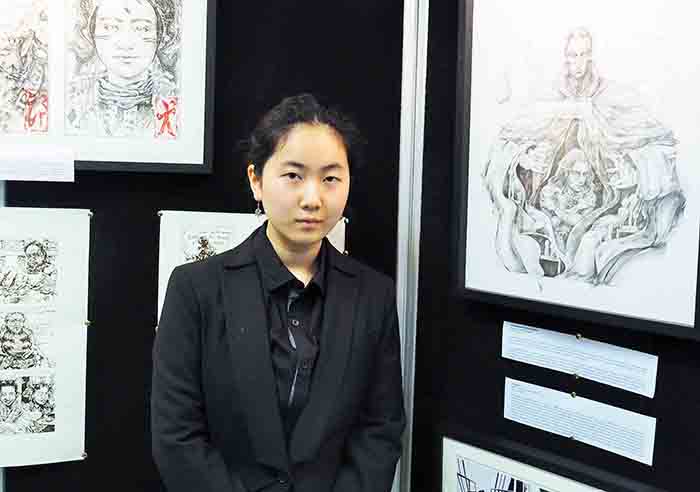
Cao’s IB exhibition
Fortunately, this didn’t last.
“I naturally got accustomed to it,” Cao said, “and came to appreciate the culture. When I first came back I identified as a Canadian citizen. But as I rediscovered my heritage I came to think of myself as Chinese. Now I like it a lot more than Canada. There’s a lot more people here! And it’s good for me to take inspiration artistically, how the country has changed in the last 50 years.”
We asked Cao what she loved most about Beijing.
“I do love 798 Art District,” she told us. “I held a photo shoot there with my friends. It has a lot of history and industrial heritage, but also wonderful art. China’s artists are just as talented and diverse as artists in the west but we don’t hear a lot about them. It’s a wonderful place to explore art.”
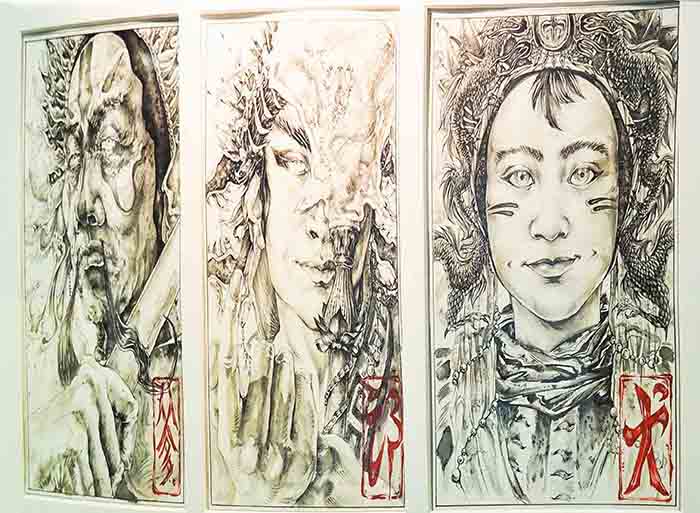
Cao’s captivating art on display
Cao aims to be a comic book artist and named as a favorite Persepolis, Marjane Satrapi’s celebrated memoir of growing up in Iran. Where in the city influenced her own art, we wondered?
“The biggest influence, of course, is 798 because I appreciate its industrial, grungy style. But I’m also a huge fan of the Forbidden City. It appeases my love of history; in China’s history it’s gone through so much, been partially destroyed, then reconstructed, now there’s clothes, artwork, all the prestigious history of China…”
Cao has just finished her IB Art exhibition, and we asked her to tell us more about her work.
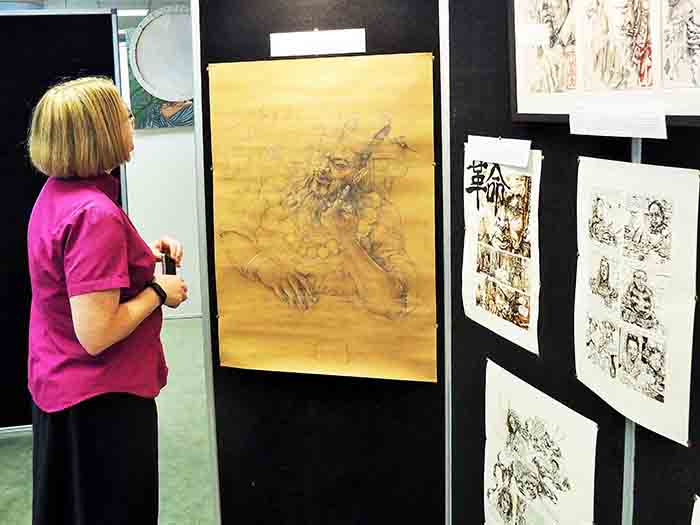
An attendee at the exhibition admires Cao’s work
“For the last two years, I’ve been developing my theme, of gender expectations and roles, both ancient and contemporary. Men’s clothes reflect their roles in various settings, political, familial, and social. Then there’s the inner world of women, which is often smothered, disregarded. So in the exhibition, on the front, you see boards with pieces of clothing associated with masculinity. Then you have to walk round to see a smaller board with pieces associated with femininity.”
“It’s interesting to reflect on how dynamics are changing, or not changing, in Chinese culture. Last year five feminists were detained, for ‘creating trouble’. But all they were doing was handing out flyers on trains to prevent sexual harassment on public transport.”
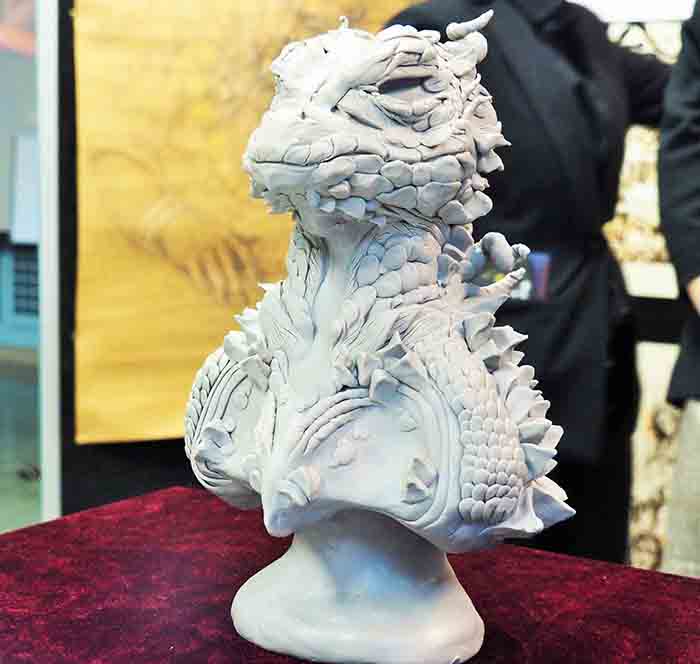
Her sculpture work shows her versatility
We asked her what she’s going to miss about Beijing.
“I’m honestly going to miss my friends. Once you stay in a place you become accustomed to it, Beijing is home, my family is here. There’s a sense of potential wherever you go.”
What about the food, we asked?
“I wasn’t born in Beijing,” she said, “so I won’t miss Beijing cuisine. I find the desserts here really gross. I was born in Sichuan, so I love hotpot and barbecues. I will miss roast duck though.”
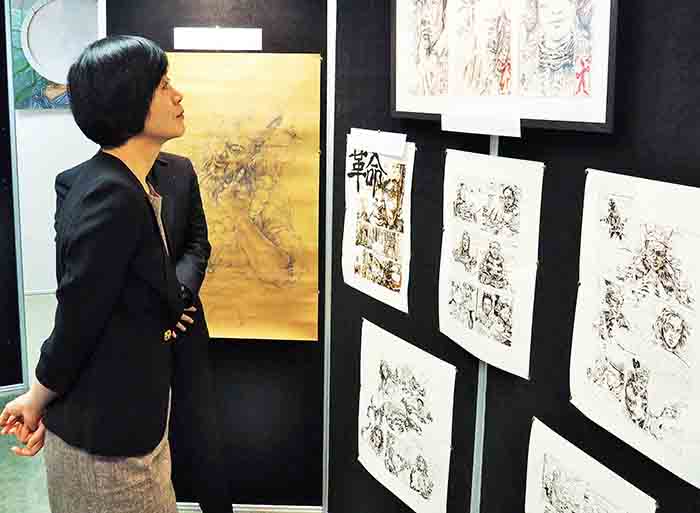
Attendees took the time to appreciate Cao’s work during the exhibition
And what, we wondered, will she miss least?
“The pollution,” she said immediately. “But really I’m just very eager to start university, connecting with new people, meeting new friends, discovering a new culture. I’ve visited Rhode Island and the professors were so genuine, so wonderful, I can’t wait.”
Finally, we asked how she would describe Beijing to her new friends, in one sentence.
“The first thing I would say is making sure you have money,” she said. “It’s such a consumer culture here, and the rents are so high… but ‘changing’ is the one word I would use. Beijing is so many things.”
 This post is paid for by YCIS Beijing
This post is paid for by YCIS Beijing
Photos: YCIS Beijing




